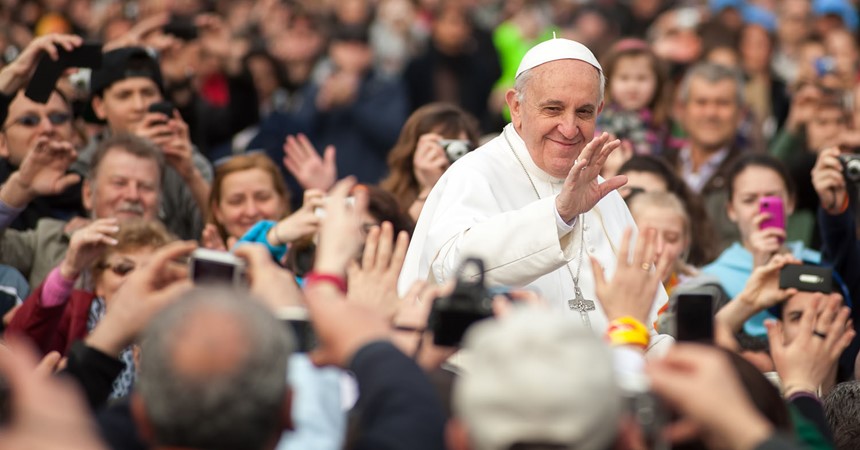The centuries-old celibacy debate was reignited last year when an overwhelming majority of bishops from nine countries in the Amazon basin called for the ordination of married men in order to address a shortage of clergy in the region. In an eagerly awaited document released last month titled Beloved Amazon, Pope Francis ignored recommendations by the Amazonian bishops regarding celibacy, and instead focused on the South American environment, social good and protection of indigenous people.
ABC Radio religion expert Noel Debien, speaking on the Religion and Ethics Report, said Pope Francis has long been concerned about exploitation of the land, illegal logging, rapacious business practices and vested interests in the Amazon region.
“While he said nothing much at all about married clergy, he says very powerfully that this is a worldwide document and he wants everyone to pay attention to these issues,” Mr Debien said.
The Pope’s decision to ignore the celibacy issue was not particularly surprising when placed in papal context, Mr Debien said. “I would say this is something you would expect a pope to do as opposed to changing the celibacy rules, which is not something you’d expect him to do,” he said.
Instead, the Pope urged bishops to pray for more priestly vocations and to send missionaries to a region where faithful Catholics in remote areas can go months or even years without Mass. "This urgent need leads me to urge all bishops, especially those in Latin America … to be more generous in encouraging those who display a missionary vocation to opt for the Amazon region," Pope Francis wrote.
The marriage proposal sparked a fierce debate that has resulted in a widening gulf between liberal and conservative factions within the church.
Diocese of Maitland-Newcastle Bishop Bill Wright said opposition came from those already fearful of Pope Francis’s “liberalising tendencies” who saw allowing this plan to proceed as setting a precedent that could lead to the general relaxation of celibacy rules. Bishop Bill says he, like Pope Francis, favours obligatory celibacy but he sympathises with the South American bishops who cannot provide Eucharist to their people.
The factional rift was exacerbated by a book published in January by conservatives defending the tradition of priestly celibacy. From the Depths of Our Hearts was written by conservative Cardinal Robert Sarah, with a contribution from former Pope Benedict XVI.
However, the Pope Emeritus recently dissociated himself from the project and requested his name be removed as co-author. In the book, Cardinal Sarah makes a radical theological argument that celibacy is more than just a Church rule that may be changed but is, in fact, divinely ordained and must remain mandatory.
Vatican officials said Pope Francis completed the Beloved Amazon document on 27 December before From the Depths of Our Hearts was completed and the book had no bearing on his decision to reject the married clergy proposal.
The Pope’s sidestepping of the issue has angered many liberal organisations, such as Women’s Ordination Worldwide (WOW), but conservatives appear to be extremely relieved. Cardinal Gerhard Mueller, the Vatican's former chief doctrinal official and a leading conservative critic of the Pope, called it "a document of reconciliation".
Mr Debien, however, does not believe the proposal to ordain married men in certain circumstances has been completely settled. “This (the celibacy question) is not over yet,” he said. “The Pope has accepted the final document of the Amazon synod. It’s on record and there for debate and there will be more to follow.”
In 2018 the National Council of Priests of Australia backed lifting obligatory celibacy to allow mature married men to become priests in Australia. The proposal formed part of the council's submission to the historic Plenary Council to be held in October this year.
Married priests are allowed in Eastern Catholic Churches loyal to the pope, and Anglican priests who convert to Catholicism can remain married after ordination. The issue of celibacy has also been discussed in other countries with a shortage of priests, including developed ones such as Germany.



























































































